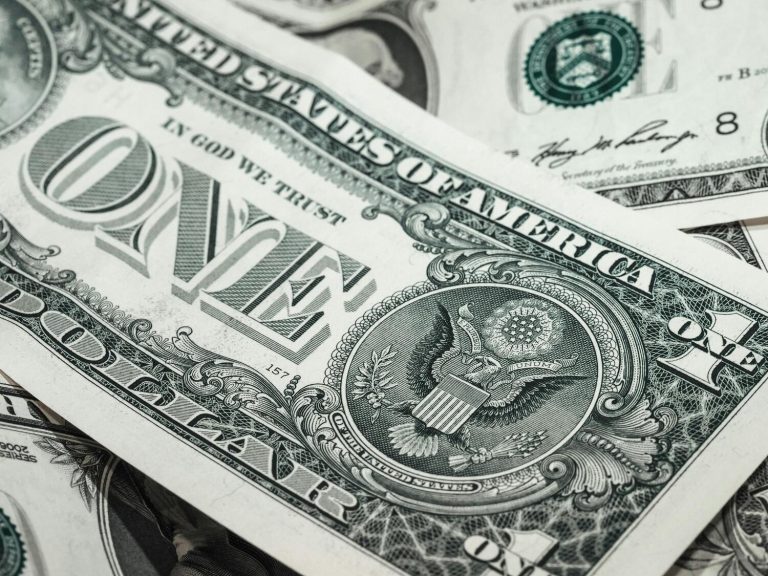It’s easy to watch your paycheck disappear in the blink of an eye—between bills, groceries, and life’s daily demands, it can feel like money just evaporates. But what if you could hold on to more of it, every month? These 15 budget hacks are more than quick tips; they’re proven strategies that stretch your money further. Whether you’re saving for a rainy day, building an emergency fund, or just trying to stop living paycheck to paycheck, these ideas could make all the difference. Let’s dive in and find out how you can make your hard-earned cash work harder for you.
1. Automate Your Savings
Automating your savings is like paying yourself first without even thinking about it. The moment your paycheck lands in your account, set up an automatic transfer to your savings or investment account. This ensures you prioritize saving before spending, building a safety net you can rely on later. Even small, consistent contributions add up surprisingly fast over time. Plus, automating helps you resist the temptation to spend that money on non-essentials.
2. Use the 24-Hour Rule
Impulse buys can wreak havoc on your budget, especially if you’re not paying attention. By giving yourself 24 hours to decide whether to buy something, you create space to reflect on whether you really need it. This pause often reveals that the desire to buy was more emotional than practical. In the long run, this practice can help you develop discipline and save hundreds of dollars each year. It’s a simple trick that adds a powerful layer of mindfulness to your spending.
3. Meal Plan Like a Pro
Food is one of the easiest categories to overspend on, and that’s where meal planning comes in. Sit down once a week and plan out your meals—breakfast, lunch, and dinner—based on what’s already in your pantry and what’s on sale at the grocery store. This helps you avoid last-minute takeout and reduces the temptation to grab expensive prepared foods. Meal planning also cuts down on food waste, saving you money and helping the environment. When done right, it can make a significant dent in your grocery bills.
4. Track Every Expense (No Exceptions)
Most people think they know where their money goes, but the reality is often more eye-opening. Tracking every expense, from your rent to your daily coffee, gives you a complete picture of your financial habits. It can highlight areas where you’re overspending without realizing it—like those sneaky app subscriptions. Seeing your spending laid out in black and white helps you make better decisions moving forward. With today’s apps and budgeting tools, this process is easier than ever.
5. Pay Yourself First Every Time
One of the most effective ways to build savings is to treat it like a non-negotiable bill. Before you pay rent, utilities, or credit cards, set aside a percentage of your income—10% is a common recommendation. This ensures you’re prioritizing your future financial well-being rather than waiting to see what’s left over. It also helps you build a buffer for unexpected expenses, reducing the likelihood of relying on credit cards. Paying yourself first can be the foundation of a solid financial plan.
6. Embrace the Power of Cash
Plastic is convenient, but it can also lead to overspending since it doesn’t feel as “real” as cash. Using cash for your weekly discretionary spending makes you more conscious of every dollar. When the cash runs out, you know it’s time to stop spending, no overdraft fees or credit card debt. This tactile approach to money management can be surprisingly powerful in controlling unnecessary purchases. Give it a try for a month and see how your spending habits change.
7. Cut Subscriptions Ruthlessly
It’s easy to sign up for free trials and forget to cancel them, but these charges can add up quickly. Take time every few months to review all your subscriptions, from streaming services to gym memberships, and cancel the ones you don’t use. You might be shocked by how much you’re paying for things you barely use. Redirecting that money toward savings or debt repayment is a smarter move. Remember, every dollar counts when you’re trying to make the most of your paycheck.
8. Buy Generic, Save Big
Brand names often come with a hefty price tag, but the quality is sometimes the same as cheaper generic versions. Compare store brands to national brands on groceries, household goods, and even medications. You might find that the savings are significant, especially when multiplied over many items. Don’t be afraid to try new products. Many store brands are made by the same companies as the name-brand products. That means you’re saving money without sacrificing quality.
9. Schedule a Weekly “Money Check-In”
Think of your finances like your health. It needs regular check-ups. Set aside 15 minutes each week to review your spending, upcoming bills, and progress toward your savings goals. This consistent habit helps you catch any issues before they turn into problems. It also reinforces your commitment to sticking to your budget. Even if it’s just a quick look at your bank statement, that awareness can make a big difference.
10. Shop with a List and Stick to It
Stores are designed to tempt you into buying things you didn’t plan to. That’s why shopping with a list (and sticking to it) is such an effective budget hack. Make your list based on what you actually need, and challenge yourself to avoid impulse purchases. Not only will this keep you from overspending, but it will also save time and mental energy. It’s a small discipline that can yield big rewards for your budget.
11. Use “No-Spend” Days or Weeks
A no-spend day (or even week) is a powerful way to reset your spending habits. The idea is to spend nothing on non-essentials for a set period of time. Use what you already have in your pantry, skip the coffee shop, and get creative with entertainment. It might surprise you how much you already have at home to enjoy. Plus, it helps you differentiate between wants and needs, giving you a stronger sense of control over your money.
12. Round Up Your Purchases
Many banks and budgeting apps let you round up your purchases to the nearest dollar and automatically stash the difference into savings. This “spare change” strategy is effortless yet effective. Over time, those little amounts accumulate into a nice chunk of change that you can put toward an emergency fund or a big goal. It’s a painless way to build savings while going about your daily life. Give it a try and watch your savings grow with almost no effort.
13. Refinance Debt When Possible
High-interest debt can drain your finances faster than you think. Refinancing, especially with lower rates or consolidating multiple debts, can reduce your monthly payments and overall interest costs. Check with your bank or credit union to explore your options. It’s also worth shopping around for the best terms. The money you save on interest can be put toward savings or other financial goals.
14. Take Advantage of Employer Benefits
Many people leave money on the table by not fully utilizing employer benefits. Flexible spending accounts (FSAs), health savings accounts (HSAs), and retirement plan matching are just a few examples. Take the time to understand what your employer offers and how it can save you money. For instance, HSAs come with triple tax advantages that can supercharge your healthcare savings. These benefits are often overlooked but can make a significant difference in your financial well-being.
15. Learn to Say “No”
Saying no isn’t about depriving yourself. It’s about protecting your financial priorities. Whether it’s turning down an expensive dinner invitation or skipping a shopping spree, the ability to say no helps you stay on track. It also helps you avoid the guilt and stress that come with overspending. Learning to politely decline can be liberating and empowering. Over time, it can transform your relationship with money and set you up for long-term financial success.
Take Control of Your Paycheck Today
These 15 hacks are more than just quick fixes. They’re strategies that can help you break the cycle of living paycheck to paycheck and start building a secure financial future. Implementing even a few of them can make a noticeable difference in your day-to-day finances.
Which one of these budget hacks do you wish you’d known sooner? Share your thoughts in the comments below, and let’s help each other make every paycheck go further!
Read More:
The Best Free Budgeting Tools That Actually Work in 2025
The Psychology of Saving: Why You Keep Failing Your Budget
Read the full article here









